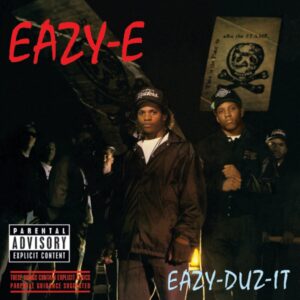Music history is marked by the presence of extraordinary talents who transcend their genres, captivating audiences worldwide. Among these legends, Michael Jackson and Elvis Presley stand out as two iconic figures who redefined their respective eras of music. Despite their contrasting styles and genres, these two superstars shared intriguing similarities in their performance styles. In this in-depth exploration, we will delve into the captivating showmanship, musical influences, and enduring legacies that united these legends, while also acknowledging their unique differences.

Showmanship and Charisma
Dynamic Stage Presence
Both Michael Jackson and Elvis Presley possessed an innate ability to command attention with their dynamic stage presence. Their performances were a spectacle to behold, leaving audiences awe-struck and inspired. Jackson’s electrifying stage presence was characterized by his intricate dance routines, fluid movements, and unmatched energy. Meanwhile, Presley’s swagger, charismatic demeanor, and captivating charm drew fans in, making them feel like a part of the experience.
Electrifying Audiences
One of the key similarities between these two legends was their ability to connect with their audience on a deep, emotional level. Jackson and Presley were masters at engaging their fans, using improvisation, audience interaction, and costume changes to maintain high levels of excitement throughout their performances. They understood the importance of keeping the energy in the room at its peak, leaving audiences yearning for more.
Signature Moves
Both Jackson and Presley became synonymous with iconic dance moves that revolutionized the world of performance. Jackson’s moonwalk, a gravity-defying dance step that seemed to glide him across the stage, left audiences in disbelief and became a symbol of his unmatched talent. On the other hand, Presley’s hip gyrations and leg-shaking moves set the stage on fire, adding an electrifying element to his rock and roll performances. These signature moves not only thrilled audiences but also cemented their status as legends.
Musical Influences and Fusion
Genre Bending
One of the remarkable similarities between these two legends was their willingness to explore and blend different genres to create their unique sounds. Elvis Presley, often referred to as the “King of Rock and Roll,” fused elements of gospel, blues, and country into his music. This genre-bending approach not only reshaped the musical landscape but also transcended racial barriers in the segregated music industry of his time.
Similarly, Michael Jackson was a genre-blending pioneer. His music incorporated elements of R&B, pop, funk, and rock, resulting in a sound that was uniquely his own. Jackson’s groundbreaking album, “Thriller,” remains one of the best-selling albums of all time, showcasing his ability to seamlessly merge genres and create timeless hits.
Vocal Dynamics
Another striking similarity between these two legends was their exceptional vocal abilities. Both Jackson and Presley possessed incredible vocal ranges and the versatility to shift between powerful belting and smooth crooning. Their vocals were not merely instruments but tools to convey emotion and connect with their audiences on a profound level. Whether it was Jackson’s soulful falsetto or Presley’s heartfelt ballads, their voices left an indelible mark on the world of music.
Band Interaction
While they were undeniably the stars of their shows, both Jackson and Presley recognized the importance of their backing bands. They fostered strong relationships with their musicians, creating a cohesive and tight-knit stage unit. This synergy allowed them to deliver unforgettable live performances, where the music seamlessly complemented their charismatic presence.
Impact and Legacy
Cultural Icons
Michael Jackson and Elvis Presley transcended the confines of music to become cultural icons of their times. They challenged societal norms and broke racial barriers during eras marked by significant social change. Presley’s rebellion against conservative norms in the 1950s challenged the status quo and set the stage for the cultural revolution of the 1960s. Similarly, Jackson’s pioneering music videos and boundary-pushing fashion choices in the 1980s challenged perceptions of race and identity.
Global Appeal
Their music knew no boundaries, transcending language and culture to captivate audiences worldwide. Both Jackson and Presley were international superstars with dedicated fan bases across the globe. Their ability to connect with diverse audiences on a global scale solidified their status as musical legends, and their music continues to resonate with people of all backgrounds.
Enduring Influence
Perhaps the most profound testament to their greatness is the enduring influence they have had on subsequent generations of artists. Musicians, dancers, and performers across various genres continue to draw inspiration from Michael Jackson and Elvis Presley. Their groundbreaking contributions to the world of entertainment remain a source of inspiration and innovation, ensuring that their legacies live on.
Beyond the Similarities
While it is evident that Michael Jackson and Elvis Presley shared many similarities in their approach to music and performance, it is essential to acknowledge their differences as well. Presley, a skilled guitarist, often focused on his vocals while performing. In contrast, Jackson, a virtuoso dancer, did not play musical instruments on stage. These distinctions highlight their individual strengths and the unique aspects of their artistry.
Conclusion
In conclusion, Michael Jackson and Elvis Presley, though hailing from different musical eras and genres, shared a captivating stage presence, musical innovation, and an undeniable impact on music and pop culture. Their legacies continue to inspire and resonate with audiences worldwide, reminding us of the power of performance and the enduring influence of true icons. As fans, we are left with the enduring legacy of two remarkable artists who have left an indelible mark on the world of music, forever earning their place in the annals of musical history.
News
Ice Cube Unveils How “Boyz-n-the-Hood” got to Eazy-E
The birth of “Boyz-n-the-Hood” stands as a pivotal moment in Hip-Hop history, unfolding like a butterfly effect. Ice Cube, the mastermind behind the song, initially intended it for the New York City rap group Home Boys Only, signed to Ruthless…
50 Cent Says He Loves Eminem to Death but It Doesn’t Cloud His Judgement
50 Cent Says He Loves Eminem to Death but It Doesn’t Cloud His Judgement In an interview honoring “Get Rich Or Ԁie Tryin’s” 20th anniversary, 50 Cent discusses his experiences as a media mogul and rapper, attempts to make sense…
50 Cent Calls Out Jay-Z for Calling Eminem ‘The White Guy’
50 Cent Calls Out Jay-Z for Calling Eminem ‘The White Guy’ In the ever-evolving landscape of hip-hop, recent headlines have been stirred by none other than 50 Cent, who took to social media to call out Jay-Z for his seemingly…
Justin Bieber thinks Eminem “doesn’t understand” modern rap
Justin Bieber thinks Eminem “doesn’t understand” modern rap Justin Bieber is defending the rap artists of his age. The musician defended “the new generation of rap” using lyrics from Eminem’s 2018 song “The Ringer,” which he uploaded as a snapshot…
The Game Asserts That His Real Reason Behind Eminem Beef Stems from Upset with Dr. Dre
The Game Asserts That His Real Reason Behind Eminem Beef Stems from Upset with Dr. Dre Hip-hop feuds have been an integral part of the genre’s history, often fueled by personal grievances and underlying tensions. The recent revelation by The…
Snoop Dogg reveals he apologized to Eminem after feud: ‘I ain’t perfect’
Snoop Dogg reveals he apologized to Eminem after feud: ‘I ain’t perfect’ Snoop Dogg reveals he apologized to Eminem after feud: ‘I ain’t perfect’ According to Snoop Dogg, he apologized to Eminem in 2020 after their fight got out of hand. There…
End of content
No more pages to load











